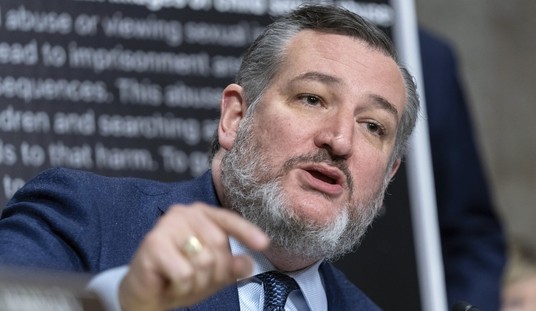Back in March, we told you about a pair of doctors who were advocating for a “proactively antiracist agenda for medicine,” though they did bring up the concern that offering preferential care based on race might elicit legal challenges. “Our path to this realization, as with nearly all advancements in social medicine, took us outside our discipline — through the field of critical race theory, in particular,” they said.
Here’s a lengthy thread from the Washington Free Beacon’s Aaron Sibarium in which he describes the Biden administration’s plan to offer bonuses to doctors who “create and implement an anti-racism plan.” Clinics can also boost their Medicare reimbursements by implementing an approach that seeks to “avoid re-traumatizing or triggering past trauma” — not physical trauma, but “multi-generational trauma” passed down through generations.
It’s a long thread, but it’s worth it:
NEW: The Biden administration will offer bonuses to doctors who "create and implement an anti-racism plan" under new rules from the Department of Health and Human Services, which also reward doctors for "trauma-informed care."https://t.co/68kxzKpSol
— Aaron Sibarium (@aaronsibarium) December 16, 2021
Effective Jan. 1, Medicare doctors can boost their reimbursement rates by conducting "a clinic-wide review" of their practice's "commitment to anti-racism." https://t.co/cexqH48K2J
— Aaron Sibarium (@aaronsibarium) December 16, 2021
The plan should cover "value statements" and "clinical practice guidelines," according to HHS, and define race as "a political and social construct, not a physiological one"—a dichotomy many doctors say will discourage genetic testing and worsen racial health disparities.
— Aaron Sibarium (@aaronsibarium) December 16, 2021
Define race as a “political and social construct.”
The "rationale" for the bonus, the new rules read, is that "it is important to acknowledge systemic racism as a root cause for differences in health outcomes between socially-defined racial groups."
— Aaron Sibarium (@aaronsibarium) December 16, 2021
Such premises have found a receptive ear in the Oval Office. Hours after his inauguration, President Joe Biden signed an executive order launching a "whole-of-government equity agenda." The new bonus scheme, HHS stresses, is "consistent with" this order.
— Aaron Sibarium (@aaronsibarium) December 16, 2021
It follows a series of steps by the Biden administration to integrate "anti-racism" into government policy: in November, for example, the Department of Homeland Security listed "diversity, equity, and inclusion" as one of its top two priorities, ahead of "cybersecurity."
— Aaron Sibarium (@aaronsibarium) December 16, 2021
HHS did not immediately respond to a request for comment.
The new rules update Medicare's Merit-Based Incentive Payment System, a scoring rubric that determines eligible doctors' reimbursement rates.
— Aaron Sibarium (@aaronsibarium) December 16, 2021
Congress set up that system in 2015 to reward clinicians for high-quality, cost-effective medical care—and to penalize them for providing unnecessary, costly services.
— Aaron Sibarium (@aaronsibarium) December 16, 2021
Doctors had been billing Medicare for services "regardless of how necessary they were," said the Manhattan Institute's Chris Pope, who worked on the legislation as a Hill fellow. Sold as a way of controlling costs, the payment reform passed with broad bipartisan support.
— Aaron Sibarium (@aaronsibarium) December 16, 2021
"Republicans who voted for [the scoring system] weren't voting for this," @CPopeHC explained. "The idea that this would be used as a tool of racial policy never came up."
— Aaron Sibarium (@aaronsibarium) December 16, 2021
But the scoring system did reward "improvement activities" that advance "health equity," creating a mechanism for HHS to inject ideology into medical compensation.
— Aaron Sibarium (@aaronsibarium) December 16, 2021
The new rules add "anti-racism" plans to the list of such activities, which are broken up into "medium" and "high-weighted" categories. "Anti-racism" plans will fall into the second weighting, giving doctors extra incentive to implement them.
— Aaron Sibarium (@aaronsibarium) December 16, 2021
Medicare is one of the most expensive programs in the US and has been growing more so over time. In 2020 alone, it cost nearly a trillion dollars. Efforts to lower the price tag, such as the 2015 payment reform, have produced administrative headaches and bureaucratic bloat.
— Aaron Sibarium (@aaronsibarium) December 16, 2021
MedPAC, the independent federal agency that advises Congress on Medicare policy, has called for the merit-based payment system to be repealed, arguing that its complicated rules have little relation to medical outcomes and saddle doctors with unnecessary paperwork.
— Aaron Sibarium (@aaronsibarium) December 16, 2021
"No one went into medicine to check all these boxes," Rita Redberg, a cardiologist on the commission, said at a public meeting in 2017.https://t.co/xvYk7XbOjh
— Aaron Sibarium (@aaronsibarium) December 16, 2021
The new improvement activities could exacerbate this regulatory burden, especially on small clinics. According to HHS, one public comment on the rules stated that "anti-racism" plans "would be easier for larger, more established practices than smaller or solo practices to adopt."
— Aaron Sibarium (@aaronsibarium) December 16, 2021
It might be tough for a solo practice to shell out $20,000 for a one-hour Zoom session with Ibram X. Kendi.
The agency said it "disagree[d]" that the bonus would have a disparate impact because a "small or new practice could tailor the activity to their context."
— Aaron Sibarium (@aaronsibarium) December 16, 2021
Clinics can also boost their reimbursements by implementing "a Trauma-Informed Care Approach to Clinical Practice," which seeks to "avoid re-traumatizing or triggering past trauma."
— Aaron Sibarium (@aaronsibarium) December 16, 2021
That includes "multi-generational trauma, whereby experiences that traumatized earlier generations, such as the genocide of Native American tribes, are passed down" to subsequent generations.
— Aaron Sibarium (@aaronsibarium) December 16, 2021
Science!
In 2018, the New York Times science section called the evidence for multi-generational trauma "circumstantial at best," saying it "falls well short of demonstrating that past human cruelties affect our physiology today." https://t.co/jYtA2kHsxZ
— Aaron Sibarium (@aaronsibarium) December 16, 2021
Medicare has always straddled the line between medical and social policy, Pope noted. By conditioning payments on compliance with civil rights law, the program played a key role in desegregating Southern hospitals in the 1960s.
— Aaron Sibarium (@aaronsibarium) December 16, 2021
In that sense, Pope said, the new payment scheme is "in tradition of how Medicare has operated since the outset."
But, he added, "the world in 1965 is very different from the world of 2021."
— Aaron Sibarium (@aaronsibarium) December 16, 2021
Thread. The notion that Biden is a moderate should be retired. Rewarding doctors to ignore biology and science in favor of social constructionism is an extremist woke project. It has nothing to do with health. https://t.co/VaVrA8a8KY
— Andrew Sullivan (@sullydish) December 16, 2021
https://twitter.com/ganthbaker/status/1471640155408662528
https://twitter.com/jswriter65/status/1471635920151625739
Seriously don't understand why doctors don't push back against this. Democrats repeatedly claim that their practices are racist or racially-discriminatory, either directly or indirectly. It's borderline slanderous.
Society needs doctors so much more than grifting politicians.
— Chris (@chriswithans) December 16, 2021
https://twitter.com/plattira/status/1471630757680627725
https://twitter.com/axeman206/status/1471570779410026496
Related:
WTAF?! A Boston hospital will offer 'preferential care based on race' and gosh, that sounds pretty racist, unethical, and ILLEGAL https://t.co/ECXzJutICG
— Twitchy Team (@TwitchyTeam) April 9, 2021
























Join the conversation as a VIP Member